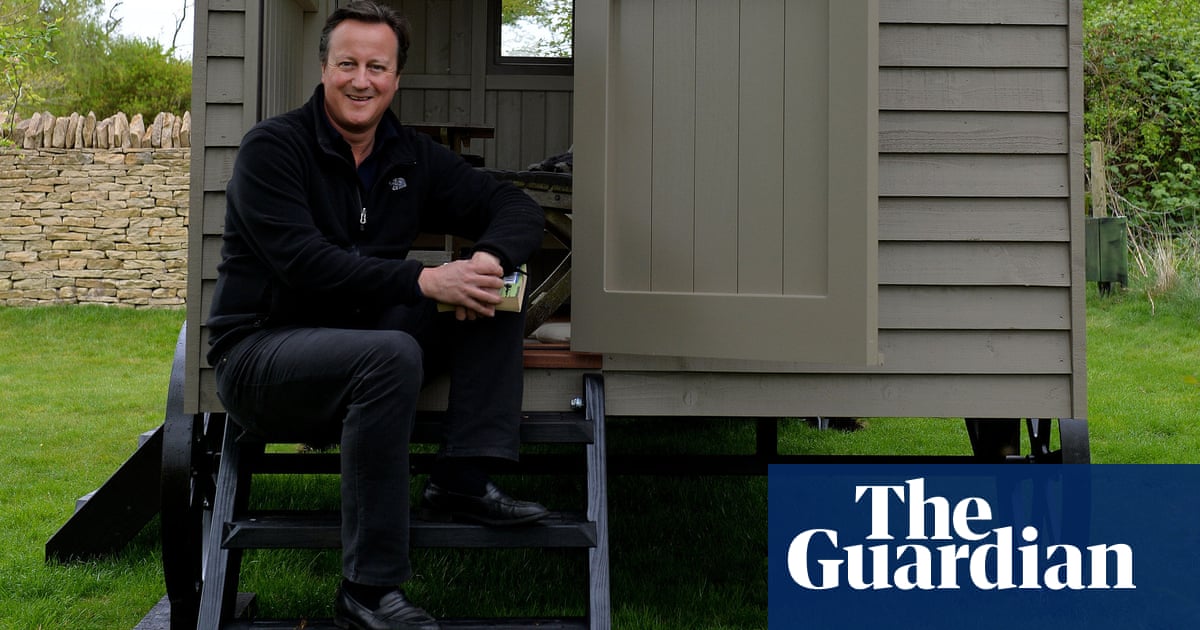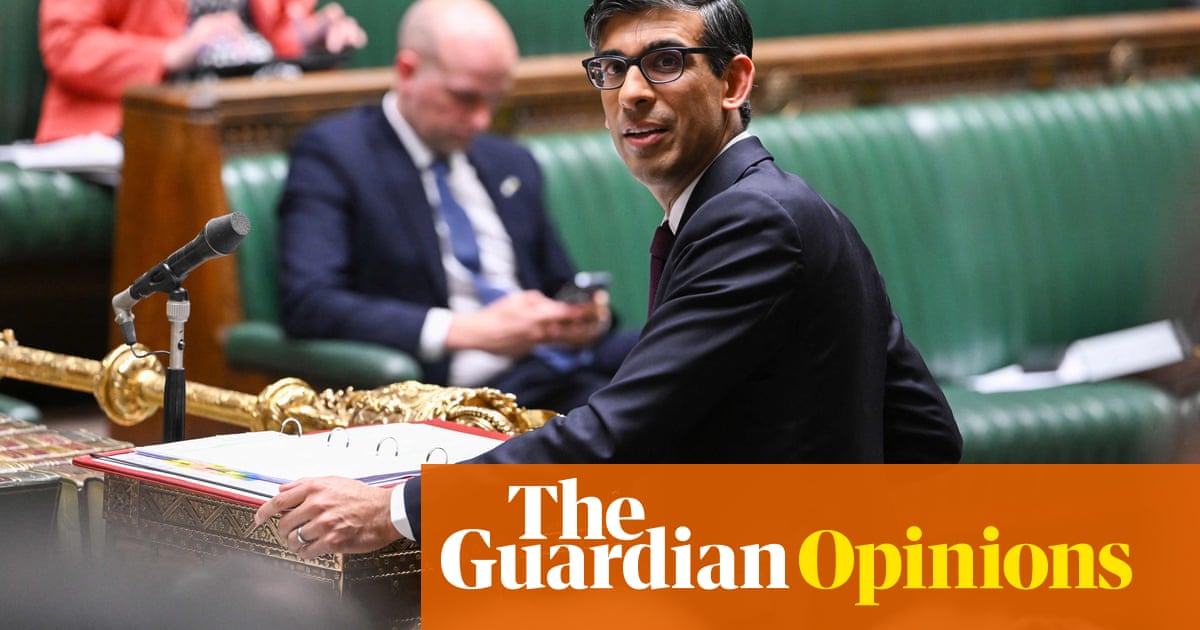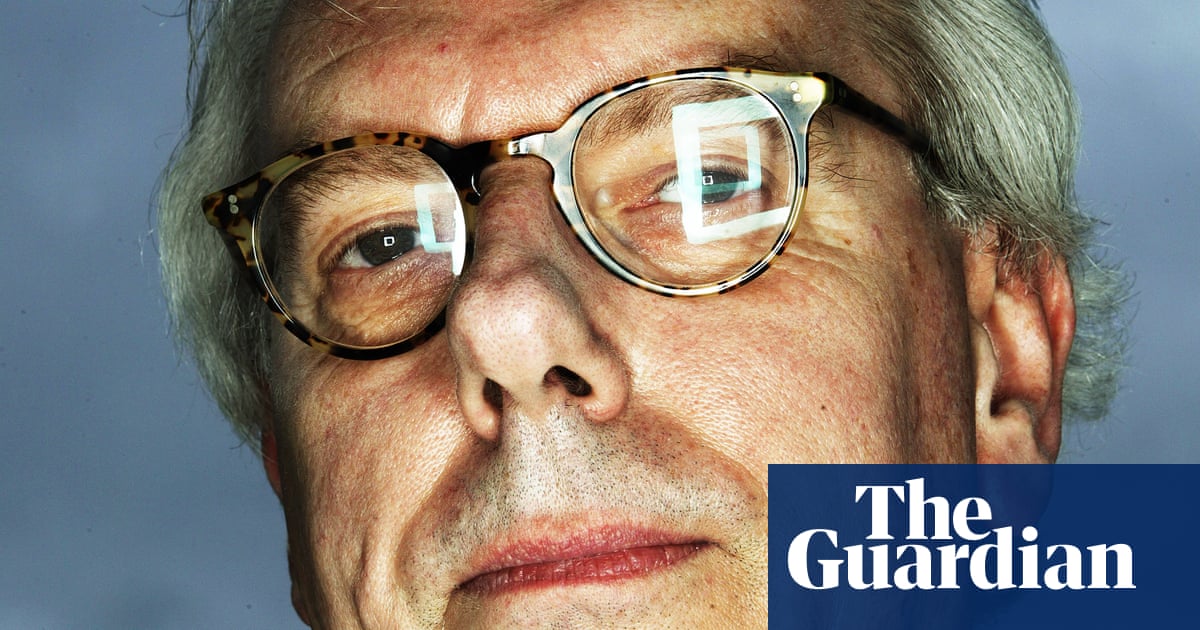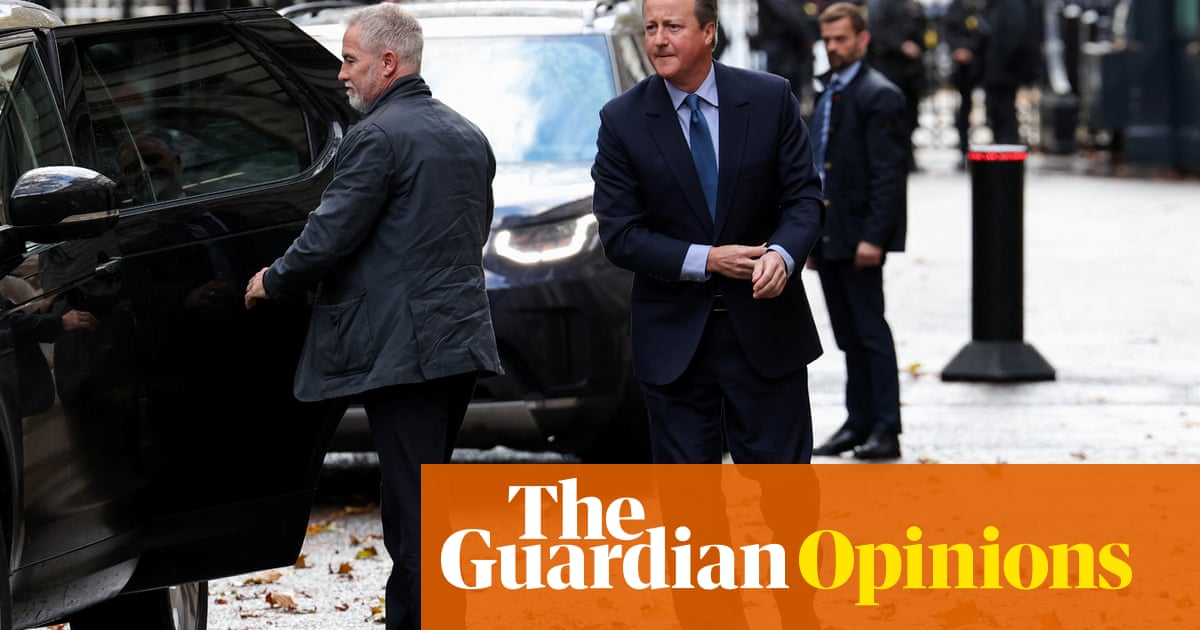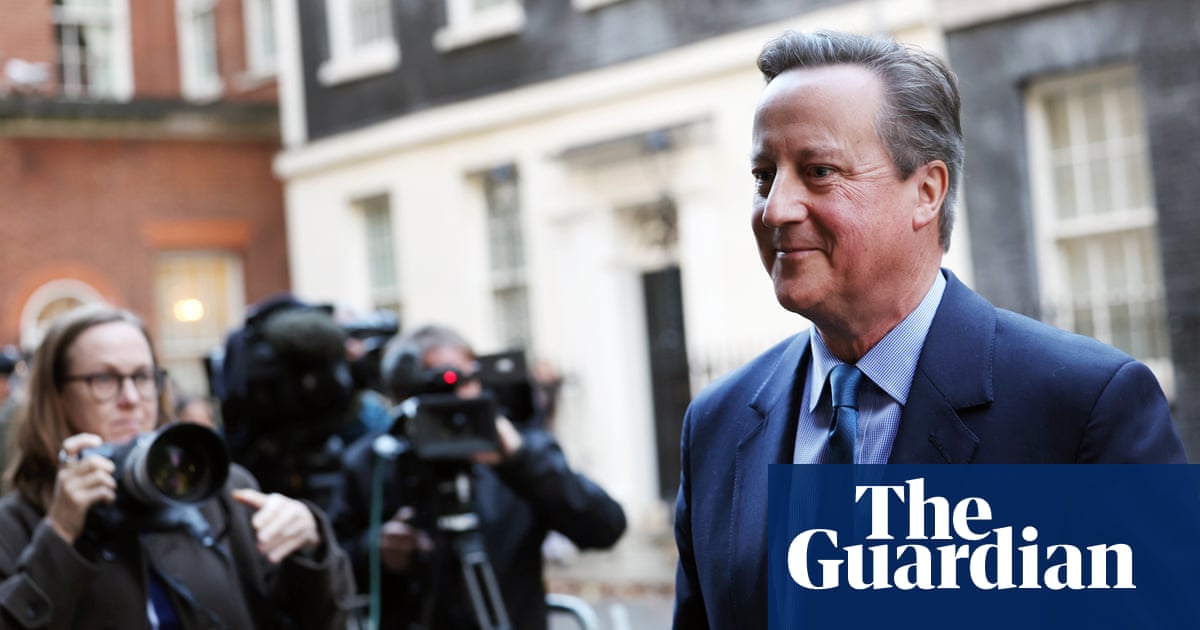
Good morning. David Cameron really is the new foreign secretary. In a way, Rishi Sunak warned us: just over a year ago, he told Tory party conference that his mission was to break with a failed 30-year political consensus and usher in something genuinely different. All the same, I don’t know if anyone could have predicted that he was planning to go back to a 60-year-old idea, instead. Even Cameron, truly the grown-up’s grown-up, was barely out of nappies when Alec Douglas-Home, the last former prime minister to take over at the foreign office, got the job in 1970.
On the other hand, it seems … quite hard to break with a 30-year consensus by appointing one of its architects, even if doing so successfully drives the firing of home secretary Suella Braverman – who lost her job via an unceremonious phone call - from the front pages. “He was the future once,” the new cabinet minister once teased Tony Blair at prime minister’s questions. We can now say that Cameron was the past once, a significantly more mind-bending proposition. The weirdest fact of the day: seven years after his resignation as prime minister, he’s still four years younger than Keir Starmer.
But there is more to be intrigued about with Cameron’s appointment than how unusual it is. Today’s newsletter, with the Guardian’s diplomatic correspondent Patrick Wintour, explains how he got the job, what the news means for Britain’s foreign policy in a time of international crisis, and whether it could change Rishi Sunak’s electoral fortunes. Here are the headlines.
Five big stories
Israel-Hamas war | Israeli forces have reached the gates of Gaza’s largest hospital as hundreds of patients, including dozens of babies, remained trapped inside. Thousands of people have fled al-Shifa hospital in Gaza City, but health officials said the remaining patients were dying due to energy shortages amid intense fighting between Israeli troops and Hamas militants. For the latest, head to the live blog.
Iceland volcano | Iceland’s prime minister has sought to reassure the nation as it braces for a volcanic eruption. Between midnight and early afternoon on Monday, the Icelandic meteorological office detected about 900 earthquakes amid warnings of the significant likelihood of the Fagradalsfjall volcano erupting within days.
Fertility | People who donate sperm, eggs and embryos to help others have children will lose the right to anonymity from the moment the child is born, under proposed changes to UK fertility law. The proposal, prompted by the ease with which people can sidestep formal routes to trace donors via private DNA testing and social media, is one of several proposals published by the regulator today.
Environment | BP and Spotify were among companies who bought carbon credits at risk of being implicated in potential Uyghur forced labour, an investigation has found. A Guardian investigation found that provider South Pole was aware of the risk of forced labour linked to the scheme in 2021.
Counter-terrorism | Downing Street’s plan to ban the glorifying of terrorism risks criminalising “supporters of the suffragettes, Nelson Mandela, or even the crowd at Murrayfield belting out Flower of Scotland”, a former independent reviewer of terror legislation has warned.
In depth: ‘People know Cameron’s been a bit bored – he felt his career was cut short’
Anyone who isn’t an intimate associate of Rishi Sunak who claims to have seen this one coming is, frankly, making it up. Kiran Stacey reports that at a lunch with friends including junior minister Andrew Mitchell four days ago, Cameron gave no hint of his imminent return; this Sky News clip of Cameron getting out of the car on Downing Street, with a voice audible in the background saying “what the hell?”, gives a sense of the general mood of disbelief.
“I don’t think anyone knew for certain until Sunday that there was even going to be a wider reshuffle, as opposed to a simple dismissal of Braverman,” said Patrick Wintour, whose analysis of Cameron’s return is required reading. “This is a massive rabbit, or possibly elephant, out of the hat.”
The Times and the Daily Telegraph reported last night that Cameron met with Sunak to discuss taking the job last Tuesday – before the controversial newspaper article by Suella Braverman that was thought to have prompted the reshuffle, but after her remarks about “hate marches” and homelessness being a lifestyle choice. Perhaps the least surprising part of the story, Patrick said, is that Cameron would say yes. “People have known that he’s been a little bit bored. He felt his political career was cut short by the disaster of the referendum, and he wasn’t someone who would naturally set up a global thinktank.”
His business career, meanwhile, has looked less than golden since a parliamentary inquiry found that he had displayed a “significant lack of judgment” in lobbying ministers (including Sunak) on behalf of supply chain finance business Greensill, which paid him handsomely for his political connections. You might question whether that scandal should have disqualified Cameron from a return to the cabinet table, but in any case, Patrick said, “you can see why he’d find it tempting.”
Cameron’s allies told Pippa Crerar that he hopes to play the role of “consigliere” to Sunak, as William Hague – who is said to have facilitated the appointment – was for him. But there are big questions about whether his public opposition to major policies like the plan to scale back HS2 will lead to tensions on policy beyond his brief. Regardless, here are some starting points on why he got the job.
Personality: He is seen as a heavyweight on the international stage
For Sunak, Patrick said, a key foreign policy problem has been Britain’s waning ability to make its voice heard. “When you speak to foreign diplomats and ministers, there is a sense that they’re thinking … are you all right, Britain?” Patrick said. “They will tell you that the constant ministerial churn [six foreign secretaries in just over five years, and award yourself a breakfast pastry if you can list them] and countless domestic crises mean that people just aren’t going to listen to you.” After all, why pay too much attention to a foreign secretary who might not be around for long enough to return the favour?
“Where does America go now when it’s looking for a reliable partner in Europe? It’s more likely to be Germany or France. And the same thing is true in European capitals.” The hope may be that Cameron’s personal heft can make up for some of that.
James Cleverly, who has moved on to replace Braverman at the Home Office, had very little such capital to deploy, Patrick added. “He’s obviously a nice man and he gets on well with people, but I don’t think he had a particular vision about what he wanted to do in the job. As PM for six years, and attending so many international summits, Cameron knows a lot of big players. People may listen to him a bit more.”
Policy: Haunted by Brexit, previously critical of Israel
Cameron’s appointment appears to be more about restoring that broad influence than a particular shift that Sunak has in mind on foreign policy, Patrick said. Nonetheless, there is plenty in his record as prime minister that might point to how he will do the job.
Ben Quinn has a guide to the most notable foreign policy themes of his premiership. Perhaps chief among them are his failed intervention in Libya, widely considered to have led to a failed state but which he later claimed offered the country a chance at democracy which it did not take; the vexed claim that UK-China relations were entering a “golden era”; and the EU referendum.
To that list, Patrick adds that “he was a big advocate of the idea that we should spend 0.7% of gross national income on overseas aid, which he thought was a signature way to show the Conservative party had changed.” (Cameron said it was “very sad” when Sunak dropped that commitment as chancellor.) He also notes Cameron’s interest in global anti-corruption work, a commitment that looks prescient now: “He convened a major conference in the twilight of his premiership, and stayed on that issue after he left office.”
The most urgent issues facing Cameron are, of course, the wars in Ukraine and Gaza. He can be expected to continue with the government’s commitment to backing Kyiv. On Israel, Patrick said, “he was a very passionate supporter, but he didn’t shy away from criticism. He described Gaza as a prison camp, saying that until the blockade was lifted, there would be no solution in the Middle East. There are very few Conservative MPs who would say that today.”
Politics: ‘Daddy’s home’
For an index of the psychologically complicated jubilation that more liberal Tories felt yesterday, look no further than Iain Dale’s column for the Daily Telegraph (£), which concluded: “Daddy’s home”.
The party’s hard right, on the other hand, was enraged by the defenestration of their very best mummy, Suella Braverman, and was not shy of saying so: see, for example, Andrea Jenkyns’ apoplectic and somewhat messy letter of no confidence in Sunak, in which she asked: “How long are MP’s going to sit on their hands and let he and his out-of-touch advisors damage our party irrevocably?”
Most obviously, Cameron’s appointment will provide some reassurance to the “blue wall” liberal Tories toying with a Lib Dem conversion, but will be less palatable to those for whom Brexit support is an article of faith. Sunak may be hoping that persuadable voters who are mostly put off by the chaos of his party’s upper echelons will be soothed by a figure from a bygone age – even one who drove the austerity agenda.
“I may be naive, but I don’t know how much this is really a domestic political play – it’s about needing a big player in a big job,” Patrick said. “But there is no doubt that the right of the party will be aghast.”
Nesrine Malik’s column this week is on the Islamophobia that never truly left British politics: “Suella Braverman is gone, but her message was heard loud and clear”. Nimo
David Courtney, an east London gangster turned author, was found dead earlier this month. His death did not come as a shock – he had been recording farewell messages for months as he struggled with arthritis and other debilitating illnesses. Emily Dugan speaks with his loved ones (above) about whether assisted suicide could have changed Courtney’s end. Nyima Jobe, newsletters team
Emma Bryce spoke with Richard Thompson, the biologist who discovered microplastics 30 years ago, about the best ways to curb their rampant pollution. Nimo
Author Annabelle Hirsch writes on her late grandmother’s lipstick and what it taught her about history – and why learning about the past isn’t all about monuments and analysis of battles. Nyima
During a time of near constant crisis, keeping hope alive feels like a near impossible task. The New Yorker’s interview (£) with Robert Jay Lifton, a psychoanalyst and author who has spent 70 years studying how both victims and perpetrators of atrocities manage to survive and understand the world around them, provides insight into how to navigate “an age of catastrophe”. Nimo
Sport
Football | Thousands of mourners lined the route of Sir Bobby Charlton’s funeral procession (above) as it made its way from Old Trafford to Manchester Cathedral on Monday. Mourners including his family, England manager Gareth Southgate, and former Manchester United manager Sir Alex Ferguson attended the service. Jonathan Wilson wrote that despite setbacks and tragedy, “Charlton never quite lost that sense of United as something magical”.
Tennis | Alexander Zverev beat Carlos Alcaraz 6-7 6-3 6-4 at the ATP Finals. Zverev, who won the title in Turin in 2021 and in London in 2018, is making his sixth appearance at the prestigious event.
Trampoline | Britian’s Bryony Page stared in the final day of the trampoline world championships. The double Olympic medal winner took her second world crown – but her first in front of home fans – with a routine steeped in difficulty at the 37th FIG Trampoline Gymnastics world championships. Have a look at the highlights in this photo essay.
The front pages
The front page of the Guardian has a picture of David Cameron under the headline “Cameron’s shock return in high-stakes reshuffle”. Many of the papers follow a similar theme, with the Times saying “Sunak brings Cameron back from the wilderness”. In the Mail it’s “Rishi’s big throw of the dice”. The Sun has “Recall me Dave”, and in the Mirror it’s “Back where we began”. The i takes the line “Back to the future: PM gambles on return of David Cameron”. The front page of the Financial Times has “Cameron returns to front line after Braverman sacking sparks reshuffle”. And the Telegraph goes down a slightly different path with “Cameron’s return sparks Brexiteer backlash”.
Today in Focus
The return of David Cameron
Former prime minister David Cameron has been installed as foreign secretary in Rishi Sunak’s reshuffle, in which Suella Braverman was also sacked from the cabinet. Pippa Crerar reports
Cartoon of the day | Dan Francis
The Upside
A bit of good news to remind you that the world’s not all bad
In this week’s The pet I’ll never forget column, we hear the story of Queenie, a dearly remembered budgie who was an integral part of Amy Fleming’s family.
Fleming recalls teaching Queenie how to say “merry Christmas”, and not knowing whether Queenie was a girl or a boy due to her ever-changing colours.
Queenie died after the family dog “scragged her”, yet her memory lives on today. “What was magical about Queenie was just how keen this tiny, exotic being seemed to be to interact with us big, clumsy humans.”
Sign up here for a weekly roundup of The Upside, sent to you every Sunday
Bored at work?
And finally, the Guardian’s puzzles are here to keep you entertained throughout the day – with plenty more on the Guardian’s Puzzles app for iOS and Android. Until tomorrow.
Quick crossword
Cryptic crossword
Wordiply






